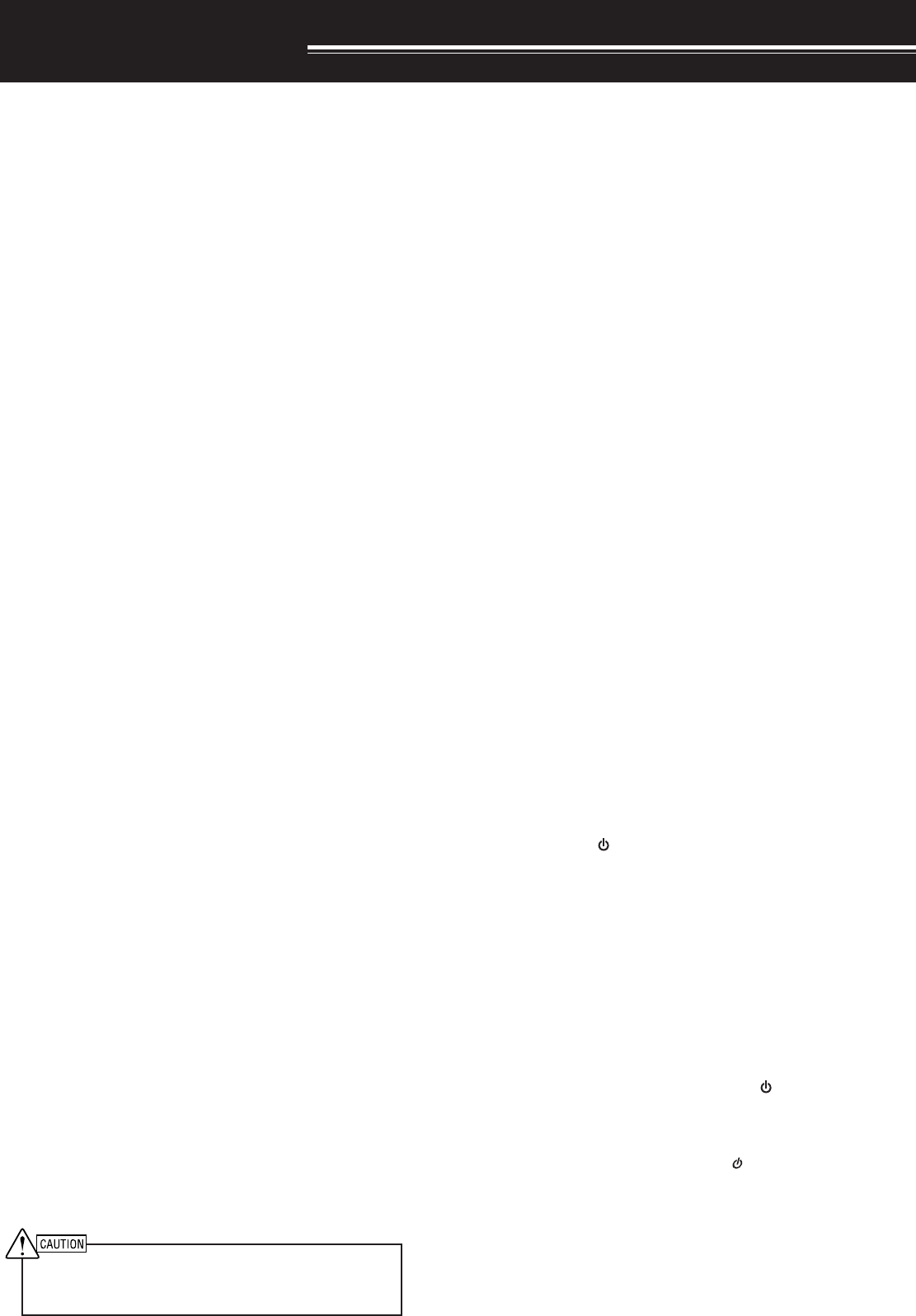
99
TROUBLESHOOTING
Note:
◆
Record the date of purchase, serial number and dealer from
whom the transceiver was purchased.
◆
For your own information, retain a written record of any
maintenance performed on the transceiver.
◆
When claiming warranty service, please include a photocopy of
the bill of sale, or other proof-of-purchase showing the date of
sale.
CLEANING
The keys, controls and case of the transceiver are
likely to become soiled after extended use. Remove
the controls from the transceiver and clean them with
a neutral detergent and warm water. Use a neutral
detergent (no strong chemicals) and a damp cloth to
clean the case.
LITHIUM BATTERY
This transceiver uses an EEPROM to store memory
channel data, menu configurations and all necessary
operation parameters. So, you never have to worry
about replacing batteries to operate the transceiver.
However, the transceiver’s built-in TNC requires a
lithium battery (CR-2032) to store the TNC data.
Battery lifetime varies, but under normal operating
conditions, it should last for approximately 5 years.
If you find that the TNC no longer stores the TNC
parameters, contact an authorized KENWOOD
service center for replacing the lithium battery.
DEMONSTRATION MODE
The transceiver can be configured to enter the
demonstration mode for display purposes. To enter
the demonstration mode:
1 Switch the transceiver OFF.
2 Press [FUNC]+[ ] to switch the transceiver ON.
• On the dot-matrix display windows, you will see
a few killer whales jump across the display.
You will also notice the display brightness
changes and LEDs turn ON and OFF
automatically.
• If you operate the transceiver while in the
demonstration mode, the demonstration is
temporarily paused. But, if no operation is
performed for more than 10 seconds, the
demonstration starts again.
3 To exit the demonstration mode, first turn the
transceiver OFF, then press [FUNC]+[ ] to turn
the transceiver ON.
Note: You cannot exit the demonstration mode by simply switching
the transceiver OFF or performing a full reset {page 92}. You must
switch the transceiver OFF then press [FUNC]+[ ] to turn the
transceiver ON in order to exit the demonstration mode.
GENERAL INFORMATION
Your transceiver has been factory aligned and tested
to specification before shipment. Under normal
circumstances, the transceiver will operate in
accordance with these operating instructions. All
adjustable trimmers, coils and resistors in the
transceiver were preset at the factory. They should
only be readjusted by a qualified technician who is
familiar with this transceiver and has the necessary
test equipment. Attempting service or alignment
without factory authorization can void the transceiver
warranty.
When operated properly, the transceiver will provide
years of service and enjoyment without requiring
further realignment. The information in this section
gives some general service procedures requiring little
or no test equipment.
SERVICE
If it is ever necessary to return the equipment to your
dealer or service center for repair, pack the
transceiver in its original box and packing material.
Include a full description of the problems
experienced. Include both your telephone number
and fax number (if available) along with your name
and address in case the service technician needs to
call for further explanation while investigating your
problem. Don’t return accessory items unless you
feel they are directly related to the service problem.
You may return your transceiver for service to the
authorized KENWOOD dealer from whom you
purchased it or any authorized KENWOOD service
center. A copy of the service report will be returned
with the transceiver. Please do not send
subassemblies or printed circuit boards. Send the
complete transceiver.
Tag all returned items with your name and call sign
for identification. Please mention the model and
serial number of the transceiver in any
communication regarding the problem.
SERVICE NOTE
If you desire to correspond on a technical or
operational problem, please make your note short,
complete, and to the point. Help us help you by
providing the following:
1 Model and serial number of equipment.
2 Question or problem you are having.
3 Other equipment in your station pertaining to the
problem.
4 Meter readings.
5 Other related information (Menu setup, mode,
frequency, key sequence to induce malfunction,
etc.).
DO NOT PACK THE EQUIPMENT IN CRUSHED
NEWSPAPERS FOR SHIPMENT! EXTENSIVE DAMAGE MAY
RESULT DURING ROUGH HANDLING OR SHIPPING.


















